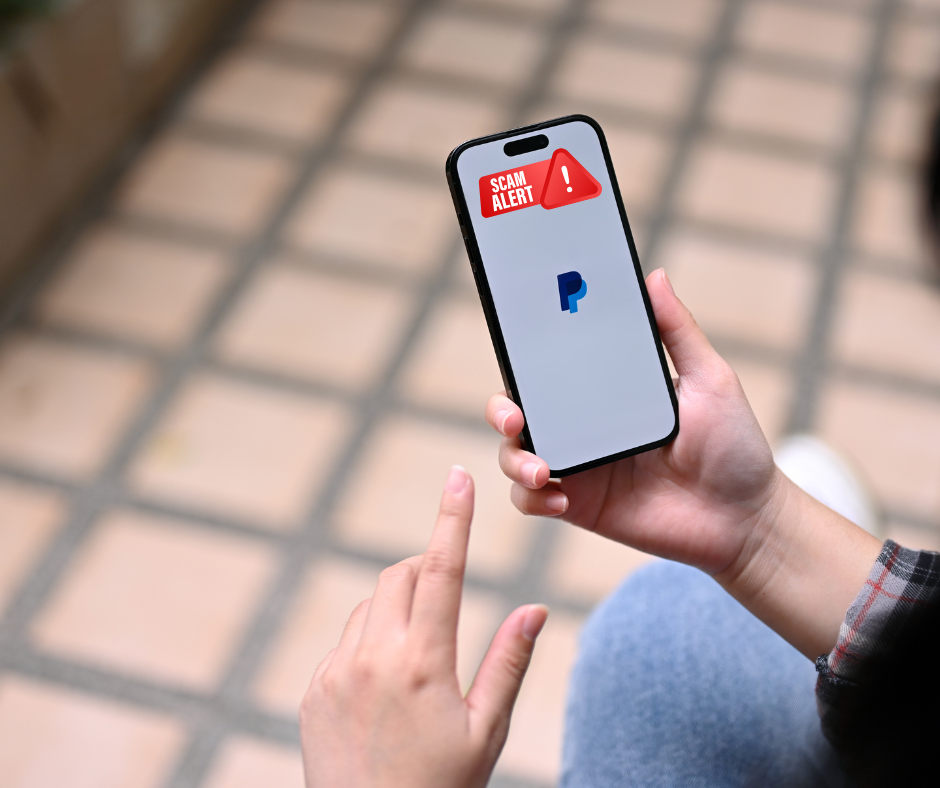
PayPal is a popular payment platform that many of us use because it allows us to shop online, send money, and more—without having to share our bank or credit card details.
Because of its popularity, scammers are out in full force with various tactics. According to ScamAdvisor, McAfee reported a 600% spike in PayPal scams just since January of this year. If you use PayPal, keep reading so you don’t fall for the latest tricks.
Common PayPal Scams
The most common PayPal scams involve receiving an official-looking fake email that appears to be from PayPal. These emails are often designed to look urgent or tempting, tricking you into clicking harmful links or sharing personal information.
Look out for subject lines like:
• “Bonus! A $100 PayPal Gift Card Opportunity”
Who doesn’t love “free” stuff, right? Scammers know this—it’s the perfect bait to trick us into sharing personal information and potentially allowing them to take over our accounts.
• “Urgent! Action Required within 48 hours | Avoid Account Suspension | Limited Access to your PayPal Account”
Scammers rely on fear and urgency. These emails prey on our instinct to protect our money and accounts. Clicking on the link usually takes you to a fake PayPal site designed to steal your login credentials and personal data.
• “You’ve Been Charged.”
This email scam claims PayPal has detected an unauthorized transaction, often for hundreds of dollars in Bitcoin, security software, or tech gadgets. You’re urged to call a number if you didn’t authorize the charge. Sounds legit? Wrong! The call connects you to a fake PayPal representative who asks for your login details and may instruct you to install software. This grants them access to your account and device.
PayPal Marketplace Scam: Friends and Family
Not all scams arrive via email. Some happen when you're using Facebook Marketplace, Craigslist, outdoor markets, pop-up shops, and similar platforms.
• “Friends and Family” Scam
Have you ever had a seller request that you send payment via “PayPal Friends and Family” to avoid transaction fees? While it might sound like a way to help a small seller, it’s a huge red flag. Payments made this way are not protected by PayPal’s buyer protection program. You won’t be able to dispute the transaction or request a refund if something goes wrong. Scammers use this tactic to leave you completely unprotected.
How to Protect Yourself from PayPal Scams
Never click on links in suspicious emails. Go directly to the official PayPal site.
Enable two-factor authentication for added security.
Be wary of urgency—it’s a common scam tactic designed to pressure you into quick decisions.
Monitor your PayPal account regularly to catch unauthorized activity.
Set up transaction notifications within your account.
Report suspicious emails and messages to PayPal.
Avoid using Friends and Family for anyone you don’t personally know—especially sellers.

